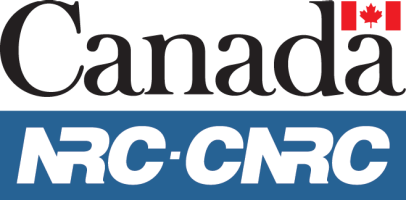Smart Solar Community Living Lab London/Ontario
Project overview
This initiative aims to transform a real-world community in West 5 and EVE Park, London, Ontario, into a living laboratory to expedite the adoption of electrification technologies and transition from fossil fuels to electric-based solutions like solar panels, heat pumps, and electric vehicles (EVs).
By collaborating with researchers, industry partners, and community members, the project will address technological gaps and social barriers to electrification, focusing on enhancing renewable energy integration, developing smart microgrids, and optimizing energy use in buildings. It seeks to analyze the potential of electrification at the community level, leveraging digital twins and data-driven models, to reduce carbon emissions and improve community resilience.
Solutions will include promoting renewable energy, particularly solar, developing community energy systems, engaging the community in decision-making and advocating for policies that support electrification technology adoption.
Key project details
| Principal investigator | Caroline Hachem-Vermette, associate professor, Building, Civil, and Environmental Engineering, Concordia University |
| Co-principal investigators | Andreas Athienitis, professor, Concordia University; Alan Fung, professor, Toronto Metropolitan University |
| Research collaborators | Ursula Eicker, Concordia University; Heike Schreiber, National Research Council of Canada; Maya Ezzeddine, Schneider Electric; Milfred Hammerbacher, S2E Tech |
| Non-academic collaborators | National Research Council of Canada; Schneider Electric; S2E Tech |
| Research Keywords | Users engagement, energy modeling, digital twin, microgrid optimization, decision making tool, key (social, economic, and technical) performance indicators, codes and regulations |
| Budget | Cash: $318,000 In-Kind: $250,000 |
Publications:
M. F. Kabir, M. F. Sohail, and C. Hachem-Vermette, “Adapting the 15-Minute City to North America: A Framework for Neighborhood Clusters with Urban Agriculture and Green Mobility,” Sustainability, vol. 17, no. 18, p. 8196, Sept. 2025, doi: 10.3390/su17188196.
G. Desthieux, C. Hachem-Vermette, A. Rinaldi, and S. Hong, “Bridging simulation and real-world data: Insights from solar energy communities experiences in Switzerland and Canada,” Energy Reports, vol. 13, pp. 6170–6189, June 2025, doi: 10.1016/j.egyr.2025.05.044.
K. S. Grewal, C. Hachem-Vermette, and S. Yadav, “Decision-making method to prioritize and implement solar strategies on neighborhood level,” Energy Reports, vol. 12, pp. 2062–2076, Dec. 2024, doi: 10.1016/j.egyr.2024.08.009.
S. Yadav, S. K. Panda, and C. Hachem-Vermette, “Assessment of year-round performance of SPVT greenhouse system with EAHE employing periodic thermal model,” Solar Energy, vol. 282, p. 112941, Nov. 2024, doi: 10.1016/j.solener.2024.112941.
Z. Al-Shatnawi, C. Hachem-Vermette, M. Lacasse, and B. Ziaeemehr, “Advances in Cold-Climate-Responsive Building Envelope Design: A Comprehensive Review,” Buildings, vol. 14, no. 11, p. 3486, Oct. 2024, doi: 10.3390/buildings14113486.
Accepted publications in national and international conferences:
N. Kadir, Dr. A. S. Fung, and Dr. C. Hachem-Vermette, “Predictive and transactive controls for EVE park net-zero community with AI/ML models,” presented at the 2025 Building Simulation Conference, Aug. 2025. doi: 10.26868/25222708.2025.1275.
C. Hachem-Vermette, “Sustainable parking infrastructure: comparing building envelopes across renewable energy integrated prototypes,” presented at the Joint CSCE Construction Specialty & CRC Conference 2025., 2025. [Online]. Available: https://csce-crc2025.com/
Pour un Canada à l’avant-garde de la législation en potentiel énergétique solaire, Le Devoir, June 5, 2024.
From potential to power: how Canada can lead with solar energy legislation, The Hill Times, June 3, 2024.
Research focus

Interdisciplinary collaboration and stakeholder engagement
This project will emphasize the involvement of public and private actors, residents and users as central to the research and innovation process.

Explore technical, social and environmental aspects of decarbonization strategies
Assess decarbonization solutions through the development of a comprehensive digital twin platform that mirrors community infrastructure and engage with citizens through innovative digital tools to get feedback.

Optimization of community energy systems
Development, analysis and optimization of microgrid designs and community energy networks. This includes addressing research questions around resilience, investment optimization, and the integration of building and EV charging infrastructure with grid operations.

Develop decision-making and design tools
Based on lessons learned and key performance indicators, the project aims to enable rapid deployment of decarbonized and resilient community designs and business models, facilitating scaling up in future phases.

Regulatory and code development contributions
Identify barriers and challenges in implementation, particularly related to permitting and building codes, and working to develop solutions that facilitate the deployment of electrification and decarbonization strategies.
Non-academic partners
Thank you to our non-academic partners for your support and trust.



Volt-Age is funded by a $123-million grant from the Canada First Research Excellence Fund.


